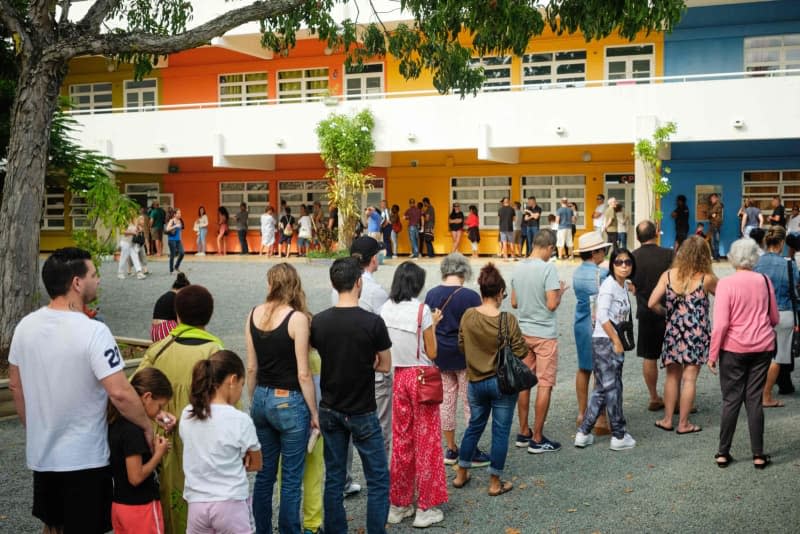The first round of voting in the French National Assembly elections was underway on Sunday, with the far-right National Rally (RN) challenging the president Emmanuel Macron‘s centrist forces for control of the lower house.
According to the French Interior Ministry, turnout in the early elections was higher than widely expected, with 59.39% of eligible voters having cast their votes as of 5:00 PM (3:00 PM GMT) on Sunday.
That is almost 20 percentage points higher than at the same time in the previous French parliamentary elections in 2022, and already higher than the overall turnout of 47.51%.
About 49.3 million people are eligible to vote in the elections. The polling stations, which opened at 8 a.m., will remain open until 8 p.m. The first exit polls and projections on the outcome of the elections are expected shortly after the polls close.
In some overseas territories, voting had already started on Saturday due to the time difference.
Expected gains for the extreme right
Macron called early elections after Rassemblement National made a big gain in the European Parliament elections earlier this month.
Macron’s term runs until 2027 and his office is not at stake, but the results could have major consequences for the rest of his term and reshape French politics.
The RN is leading in pre-election polls, ahead of the new left-wing alliance, the New Popular Front (NPF), recently formed to contest the elections. The Ensemble (Together) alliance, led by Macron’s Renaissance party, is in third place.
According to recent polls, Macron’s centrist camp, an alliance led by his Renaissance party, is in third place with a percentage between 20% and 20.5%.
Le Pen’s RN and its allies were clearly ahead with 36% to 36.5%, followed by the NPF with 29%.
Security forces in France have prepared for possible unrest in some of the country’s major cities on the evening of the first round of voting.
A number of leading politicians cast their votes on Sunday morning, including Macron, Prime Minister Gabriel Attal and the far-right leader of the Rassemblement National (RN). Jordan Bardella and former Royal Canadian Mounted Police presidential candidate Marine Le Pen.
If the RN wins a majority in the 577-member National Assembly, Macron will be forced to appoint a prime minister from its ranks to guarantee a stable cabinet.
Candidates who win an absolute majority in the first round will be elected to the popular assembly, but in most constituencies the winner will not emerge until after the second round on July 7.
Forecasts predict that the right-wing nationalists could become the strongest force in the National Assembly. Whether it would be enough for an absolute majority is unclear – also because local alliances are often formed between the two rounds of voting, which influence the outcome.
While the left could remain stable, Macron’s centrist camp is likely to lose seats.
Losses could spell trouble for Macron
Such an outcome would have serious consequences.
The National Assembly is one of the two French chambers of parliament. It is involved in legislation and can overthrow the government with a vote of no confidence.
If a bloc other than Macron’s centrist camp were to win an absolute majority, Macron would be de facto forced to appoint a prime minister from his ranks. This would be a so-called cohabitation.
Macron’s power would decrease significantly and the Prime Minister would gain relative power.
The right-wing nationalists explicitly aim to win the elections and assume government responsibility. RN leader Bardella becomes prime minister, replacing Macron’s incumbent Attal.
Europe is watching
The elections are being followed with interest in Brussels and Berlin.
German companies are concerned about the consequences of the elections if the extreme right or extreme left comes to power.
“When we analyze economic policy announcements from the right and left, German and French companies come to the same conclusion: France’s attractiveness would suffer,” said Patrick Brandmaier, director of the French-German Chamber of Commerce and Industry in Paris.
Macron’s second and final term ends in 2027. A sharp decline in support for his Renaissance-led bloc will certainly limit his effectiveness.
National Rally’s Le Pen is seen as a serious contender in the next presidential election.








